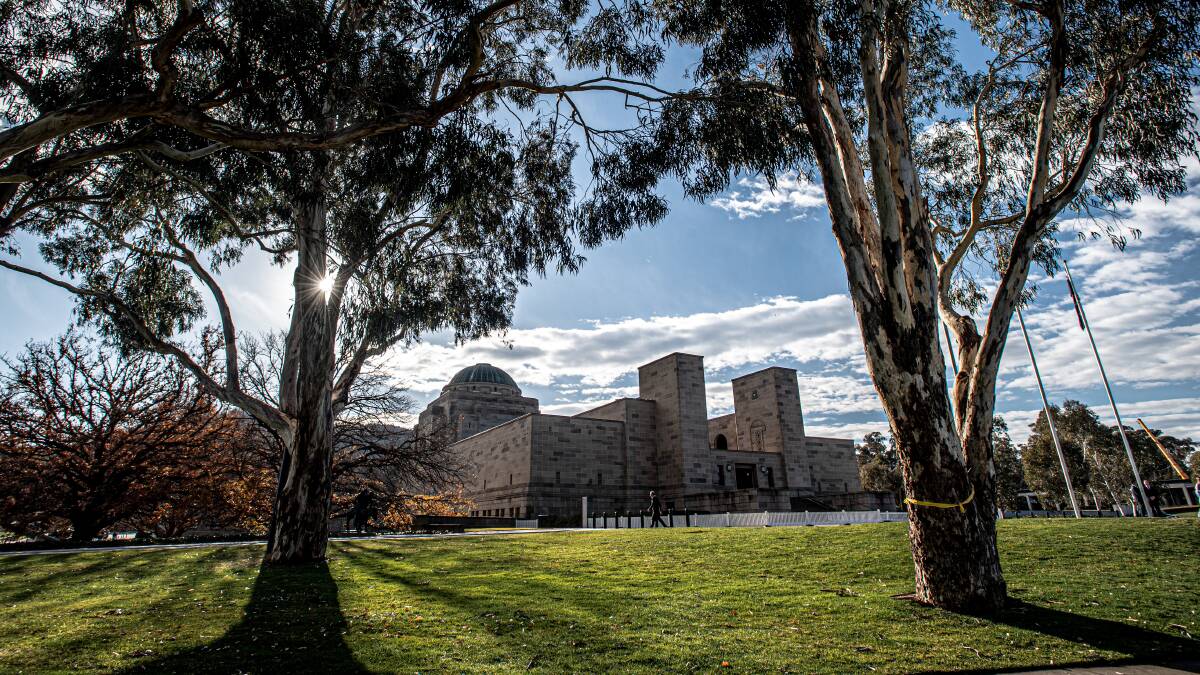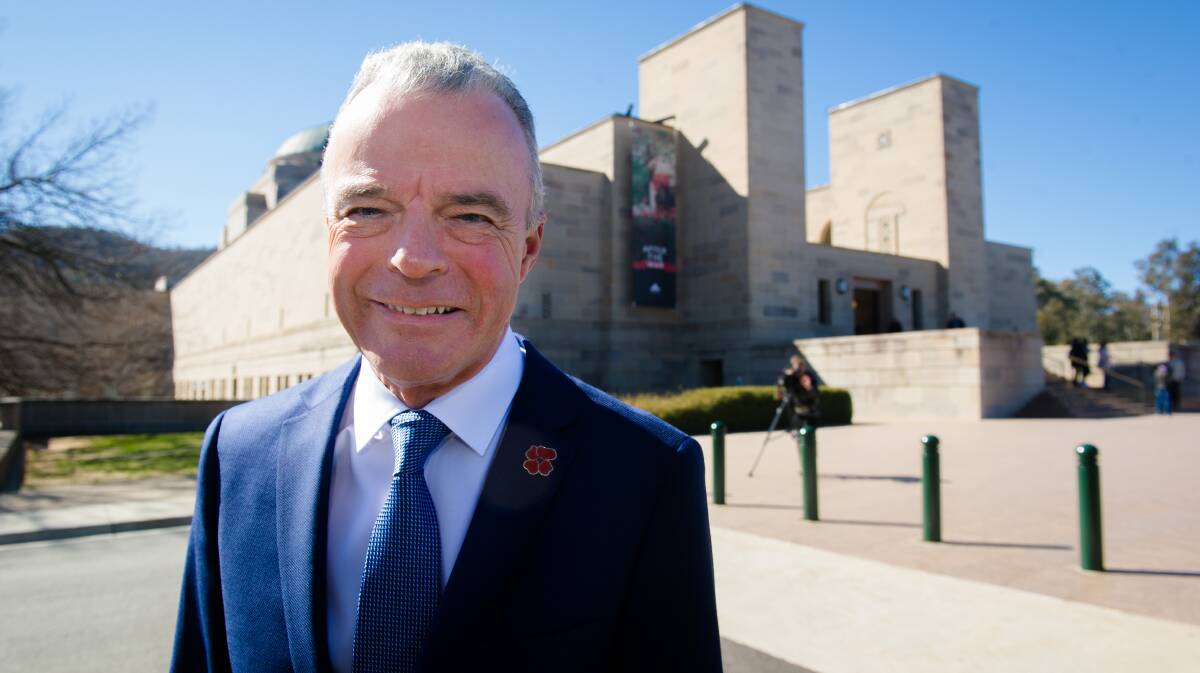
In his splendid history of Australia during the 1940s, Stuart MacIntyre notes that public comments by the public servant Dr H.C. Coombs were sometimes controversial. He was accused of "pushing the government line" and the opposition leader, Robert Menzies, asked if Dr Coombs was still regarded as a public servant and who was paying his salary. It didn't do him a lot of harm as he subsequently became governor of the Reserve Bank and he now is able posthumously to enjoy one of the grandest of compliments - having a Canberra suburb named after him. Let's all pray that at least within the next 100 years there can be a Pezzullo Precinct, "gated" of course, in a far-flung corner of the national capital and composed of government habitations reserved for personages with well-intended obsessions about "national security".
Subscribe now for unlimited access.
$0/
(min cost $0)
or signup to continue reading
But to get back to the point, public comments by employees in any organisation, private or public, are often contentious, especially those containing a dash of the critical.
With public service employees there's an extra twist. While all citizens in a democracy have rights to make their views known about public policy and administration, for public officials these rights need to be tempered. The problem is that the degree of tempering is often a matter of fine judgment about which there can be different legitimate views.
For the first 74 years of the Commonwealth government an attempt was made to solve this problem by applying a blanket ban on all public comments by federal officials, something that may have escaped the eagle eye of Dr Coombs. Mind you, he had had his plate full in the 1940s when the nature of Commonwealth government experienced the most radical change in its history and he was in the thick of it.
Recognising the unfairness of the blanket ban, in 1974 the then Public Service Board, with the agreement of the Whitlam government, abolished the regulation enforcing it and provided guidelines for staff. The board said that its objectives "were to give public servants greater freedom by minimising the restrictions on comment and to encourage appropriate activities of an academic kind by staff who have special expertise". The board's guidelines cautioned, however, that "staff should avoid becoming involved in public controversy where this could prejudice the identity of a politically impartial career public service". That is to say, restrictions on public comment should be the minimum necessary to maintain the public's confidence that the public service will do its very best for the government of the day whatever political party is in power. If such confidence cannot be maintained then, as happens in some other countries like the United States, swathes of public service appointments will get to be made on the basis of political affiliation rather than merit with grave consequences for public service agencies and the public interest.
No comments any volunteer might make about the war memorial's extensions need cause even the slightest flutter in the public's confidence about the ability of public servants loyally to serve the government of the day.
While the board's 1974 guidelines have been amended over the last 45 years, including to take account of such mixed value "innovations" as social media, their basic message has remained the same. Coombsian controversies, however, have persisted with cases of disciplinary action against public servant commenters sometimes ending up in the courts, and even in the High Court as recently as last year.
For better or worse recent cases suggest that the Public Service Board's hopes of giving public servants "greater freedom by minimising restrictions on comment" may not be being realised. If so, that would be consistent with what appears to be a greater sensitivity of governments and a tendency for them to be less open and accountable. Trying to get a straight answer from most ministers and their departments hasn't got any easier.
Let's take a couple of cases.
Last month it was reported that an employee of the "industry department" (presumably the Commonwealth one) got into strife when he lodged an internet post saying that the virus was benefiting "big tech" companies, a harmless enough observation. It's reported he was told to remove the post or be sacked because what he'd said could damage government relations with "big tech" companies. The person removed the post but then resigned because he said he was so offended by the gratuitous attempt to muzzle him.
More startling was the recent attempt by authorities at the Australian War Memorial to ban its family history volunteers from speaking about the memorial's $500 million extension. They were sent a memo saying "...as memorial volunteers you should not publicly comment on the extension. This includes not providing comment on the radio via talk back shows, commenting in the newspaper such as in the letters to the editor section, or commenting on a link or discussion on such social media as Facebook or Twitter. This includes not clicking 'Like' to someone else's comment." The memo went on to say that "We are all public servants" and "we must not be seen to be, or be heard to be making negative comments in the public sphere". The memo ended by threatening that "you can lose your volunteer role at the memorial" if you were not to submit to the edict.

In the face of the first flush of fuss at this ruling, the memorial stood its ground. When that made matters worse, its director, Matt Anderson, sounded the full retreat saying that volunteers were "free to share concerns about the redevelopment so long as they didn't identify themselves as a spokesperson for the memorial". He added that "We're not going to tell volunteers what to say and think". Good thinking, sir.
The volunteers are not public servants. They demonstrate their loyalty to the memorial by freely giving their time to it from the goodness of their hearts. Most importantly, no comments any volunteer might make about the institution's extensions need cause even the slightest flutter in the public's confidence about the ability of public servants loyally to serve the government of the day.
The war memorial's attempt to silence its volunteers reflects a hyper-sensitivity to criticism of its grand extensions the justification for which is, at best, tissue paper thin. Anyone doubting that need only consult the invited submission from its former director, Brendan Nelson, to the Public Works Committee inquiry on the project.
True to his political roots and holding a weak hand, Dr Nelson lards his submission with attempts to demean those opposing the extension. Overlooking that many former very senior military officials are aghast at what is being done, Dr Nelson impugns the motives and character of those opposed to what he has set in motion. They're "largely strident critics of the memorial and me". They're "misleading", "disingenuous", lack a "willingness to understand" and some are former staff affected by "the circumstances of their leaving" and who have a "resentment of subsequent changes" seen as "relegating to a forgotten past their own contributions".
The functions of the war memorial are set out in section five of its enabling Act. They essentially are for the institution to maintain a memorial for those who've died on active service and to collect related historical material and exhibit it. Dr Nelson tweaks these functions to say that the memorial is there so that those who've been killed on service "can have their stories told". As a former chief of the defence force has lamented, the war memorial is thus being turned from an institution of national commemoration into a museum. And on the Nelson principle it would be likely to need to double in size if the next hundred years are anything like the past ones even though the Australian War Memorial is now one of the biggest in the world.
It's no wonder the memorial and its former director are so sensitive about criticisms of its latest extension. In part that's because the case for it is stubbornly flimsy in terms of existing law and respectable commemorative principles.
A major lesson is that for the future, it would be better to keep former politicians away from governing roles in "cultural institutions". They generally don't mix well although, free of shackles of executive power, Dr Nelson may have made a fine volunteer at the war memorial.
- Paddy Gourley is a former senior public servant. pdg@home.netspeed.com.au.

